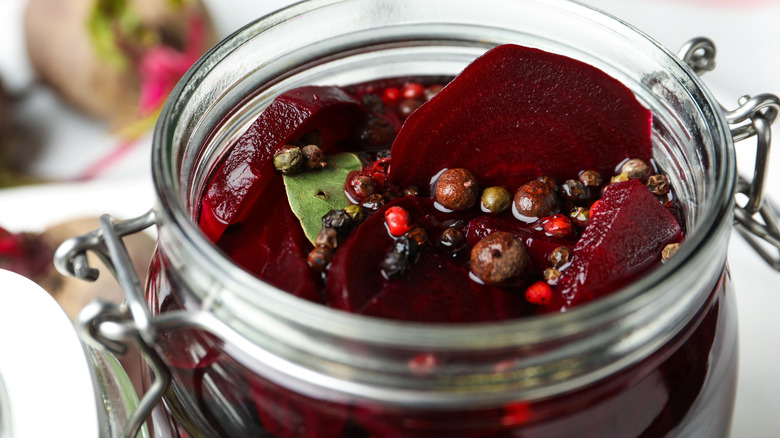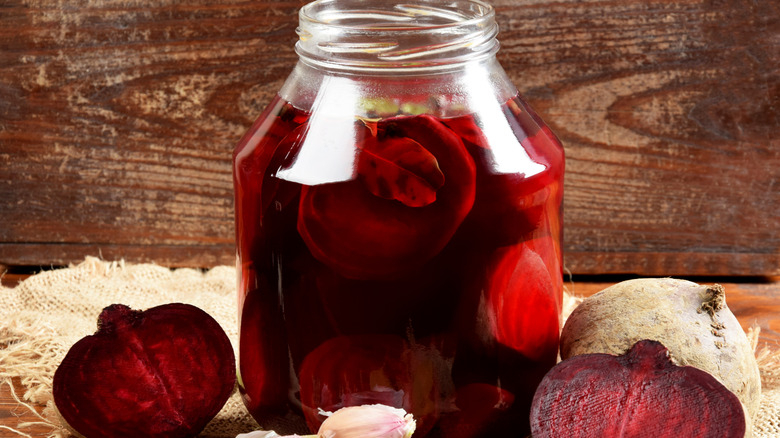The One Step You Can Skip When Making Home-Canned Pickled Beets
With home canning becoming an increasingly popular hobby, it's important to know the nuances of the craft. There are two main types of canning: water bath canning and pressure canning. Water bath canning involves sticking your jars of food in boiling water for a set amount of time (known as processing), which then creates a vacuum seal as the jars cool. Meanwhile, pressure canning requires a specialized canning machine — aptly named a pressure canner — that uses high pressure to heat the food within the jars to a higher temperature than is possible with boiling.
According to the Centers for Disease Control and Prevention, clostridium botulinum spores — the most common spores that can cause botulism — thrive in an environment that's both low in oxygen and low in acid, making them a prevalent risk in canned food. Botulism can be fatal so it is important to know what you're doing when canning. Pressure canning helps kill these dangerous spores thanks to the very high temperatures that are achieved via this method and is why pressure canning is seen as the safest form of canning. With pickled beets, however, you can actually skip the step of pressure canning and just use a water bath. Clostridium botulinum spores can't thrive in an acidic environment and pickled beets are acidic enough that any spores that are present die off.
Canning pickled vegetables
It's the vinegar used in pickled beets that gives them their high acidity. Vinegar has a pH level of two to three and according to the Clemson Cooperative Extension, highly acidic foods with pH levels of 4.6 or less are resistant to growing bacteria as a result. It is important to note, however, that the acidity of vinegar can vary, so make sure you use vinegar with at least 5% acidity in your pickling recipes.
Like pickled beets, other pickled vegetables as well as plain vegetables and fruit that are already acidic in nature can also be safely preserved by processing them in a water bath. So, if you don't have a pressure canner, pickling your beets is the best way to preserve them as long as you don't mind the slightly sour and tart flavor that the pickling process imparts. If that's a dealbreaker for you, it's time to invest in a pressure canner. To safely can plain beets, rather than pickled, you should pressure can them as you would other vegetables that aren't naturally acidic.
On average, canning pickled beets via the water bath method takes around 30 minutes depending on elevation. Afterward, canned pickled beets should sit unopened for between three days to three weeks for maximum flavor.

